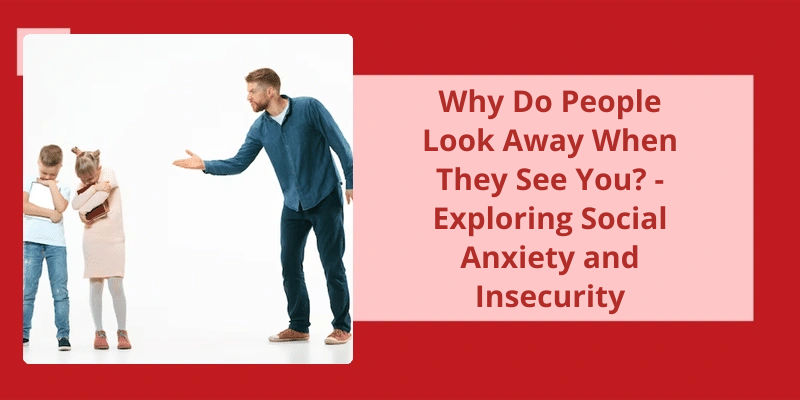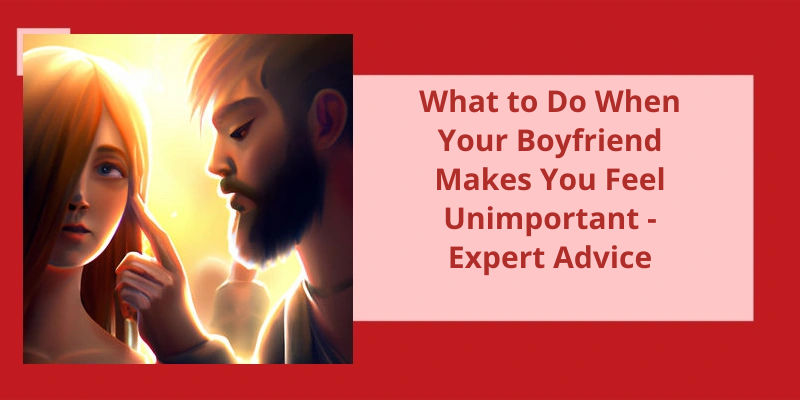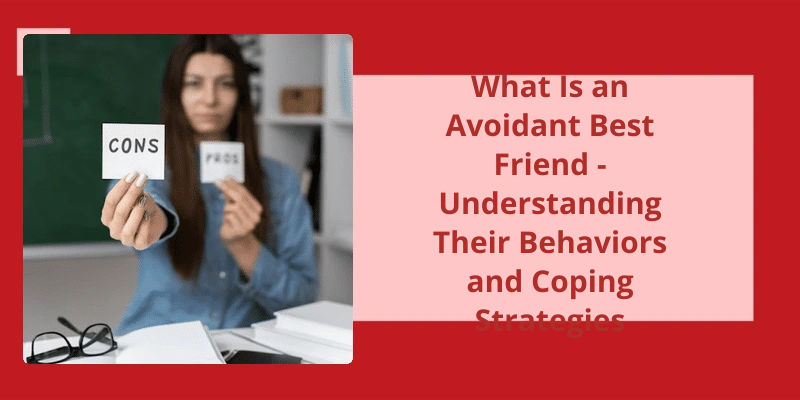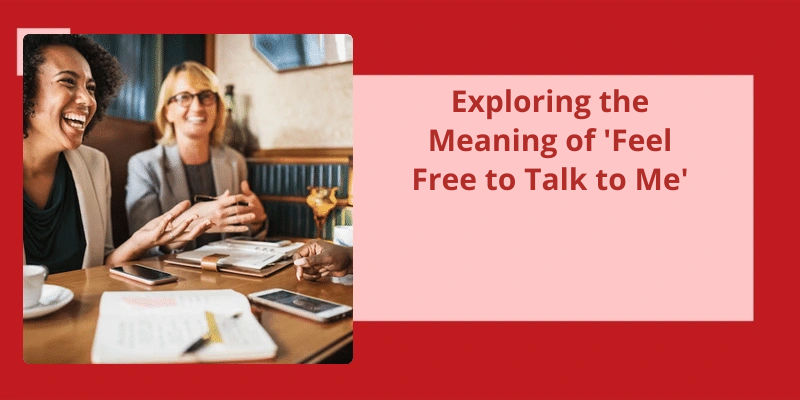The second purpose is to avoid eye contact with someone who they may perceive as a threat or uncomfortable to interact with. Additionally, cultural background, personality traits, and mood can also influence people's tendency to look away. While it may not feel great to experience avoidance from others, it’s important to remember that this behavior is often not personal, and may be a manifestation of the individual's own insecurities or social anxieties. It’s also important to note that not everyone will look away, and it’s important to focus on those connections rather than dwelling on those who may not be receptive.
What Does Looking Away Mean in Body Language?
In many cultures, avoiding direct eye contact is considered a sign of respect or submissive behavior, especially when talking to someone of higher status. However, if the person isn’t maintaining eye contact when speaking to peers or friends, it could suggest that they aren’t fully engaged in the conversation or are trying to avoid confrontation.
Looking away can also indicate lying or deception. Many people find it difficult to lie while maintaining direct eye contact, and may look away when telling a falsehood. This behavior is often accompanied by other nonverbal cues such as fidgeting or nervous laughter.
On the other hand, some individuals may look away during a conversation if they’re processing information or deep in thought. This behavior is more common in introverts who prefer to focus on their internal dialogue rather than external stimuli. Looking away can be a sign that the person is thinking about what you’ve said and is considering their response.
In romantic relationships, looking away can be a sign of attraction or shyness. If someone is attracted to another person, they may look away when caught staring in order to avoid being perceived as creepy or too forward. Conversely, a shy person may look away during intimate moments such as a kiss or hug due to feelings of vulnerability or discomfort.
In summary, looking away in body language can have a variety of meanings depending on the context and individual. It can indicate discomfort, distraction, deception, deep thought, attraction, shyness, or a combination of these factors. It’s important to consider other nonverbal cues and the situation as a whole in order to interpret this behavior accurately.
Strategies for Improving Eye Contact and Nonverbal Communication Skills
- Maintain eye contact for 3-5 seconds at a time
- Be aware of your body language
- Practice active listening
- Use hand gestures to emphasize points
- Keep a relaxed facial expression
- Avoid fidgeting or tapping
- Smile genuinely and appropriately
- Adjust your tone of voice to match your message
- Pay attention to the other person’s nonverbal cues
- Show interest and engage in conversation
It’s a common occurrence to experience someone staring at you only to hastily look away when you catch their eye. This behavior may seem strange and unsettling, causing many to wonder about the reasons behind it. However, it’s essential to recognize that staring and looking away can be attributed to various factors, and it isn’t always ill-intentioned.
Why Do People Stare and Then Look Away?
In social situations, people often get nervous and unsure of what to do, especially when they’re unsure about the person they’re interacting with. Sometimes, people might stare while trying to figure out how to engage with someone else, but quickly look away because they don’t want to make the other person uncomfortable. Other times, people may simply feel awkward and unsure of how to react to a particular situation, which makes them feel uncomfortable.
Another reason why people might stare and then look away is because they might be feeling guilty or ashamed. This can happen if they were looking at someone or something that they shouldn’t have been looking at, or if they were caught staring. People might also experience this when they’re trying to hide something from others, or when they feel like they’ve been caught doing something they shouldn’t have.
For example, if someone has been bullied or cyberbullied in the past, they may feel uneasy or anxious when they see someone staring at them. In these cases, the person may try to avoid further interaction with the person who caused them harm, or they might even try to get away from the situation entirely.
However, it’s important to remember that most people aren’t trying to be hurtful or rude when they stare or double-take. Instead, they may be feeling uncomfortable, unsure, or simply lost in their own thoughts. By remaining compassionate and understanding in these situations, we can help prevent misunderstandings, miscommunications, and even conflicts from arising.
The Role of Eye Contact in Social Interactions
- Eye contact plays an essential role in social interactions.
- It helps establish trust and builds a connection between people.
- It can communicate various emotions, including respect, interest, and empathy.
- People who avoid eye contact may come across as deceitful or disinterested.
- However, prolonged eye contact can be uncomfortable and even intimidating in some situations.
- It’s essential to maintain natural eye contact and be aware of cultural norms and personal preferences.
- Overall, eye contact is a crucial component of effective communication and building strong relationships.
Understanding the meanings behind different levels of eye contact can be helpful in decoding a person’s emotions and intentions. When it comes to the second level of eye contact, there are a few possible reasons why someone might make eye contact and then quickly look away. Let’s explore some potential explanations for this behavior and what it might mean.
What Does It Mean When a Guy Makes Eye Contact Then Looks Away?
When a guy makes eye contact with you and then looks away, it can be difficult to decipher what he could be thinking or feeling. However, it’s important to recognize that eye contact is a powerful tool when it comes to nonverbal communication. Eye contact can express emotions such as interest, attraction, curiosity, or even hostility. It can also indicate different levels of assertiveness and confidence.
In the case of a guy who looks away after making eye contact with you, it could mean a few things. For one, he could be feeling shy or nervous, and breaking the eye contact is a way for him to alleviate some of that pressure. Alternatively, he might not be interested or attracted to you, and the eye contact was just a casual glance.
Another possibility could be that he’s trying to read your nonverbal cues and see how you respond. If you continue to hold eye contact or give off signals of interest, he may be more willing to engage in conversation or pursue further interaction with you. However, if you look away or give off signals of disinterest, he may take that as a sign to back off.
It’s important to pay attention to other nonverbal cues, such as body language or tone of voice, as well as verbal communication, to get a more complete picture of what someone is thinking or feeling.
While it can be tempting to try and analyze every little detail of nonverbal cues, it’s important to take a step back and consider the bigger picture. Pay attention to all forms of communication, and remember that eye contact is just one small piece of the puzzle.
The Different Types of Eye Contact and Their Meanings
- Direct eye contact: shows confidence and interest
- Avoiding eye contact: can indicate shyness, guilt, or disinterest
- Staring: can convey intensity, aggression, or attraction
- Glancing: may indicate curiosity or nervousness
- Blinking frequently: can suggest discomfort or boredom
- Looking down: can signal submission or sadness
- Rolling eyes: can indicate frustration or sarcasm
- Squinting: often used to focus or show skepticism
Source: The Levels of Eye Contact in Attraction | Mark Manson
Conclusion
The second purpose of this behavior may be to avoid any perceived threat or discomfort that they may feel from the interaction. It’s important to note, however, that this behavior isn’t necessarily a reflection of the individual's opinion of the person they’re interacting with. Rather, it’s simply a coping mechanism that allows them to feel more comfortable in the given situation. While it can be difficult to not take this behavior personally, it’s important to understand that people look away for a variety of reasons and it isn’t always a reflection of their feelings towards you. Ultimately, developing effective communication skills and being understanding of others' behaviors can help to navigate these interactions and build stronger, more meaningful relationships.





